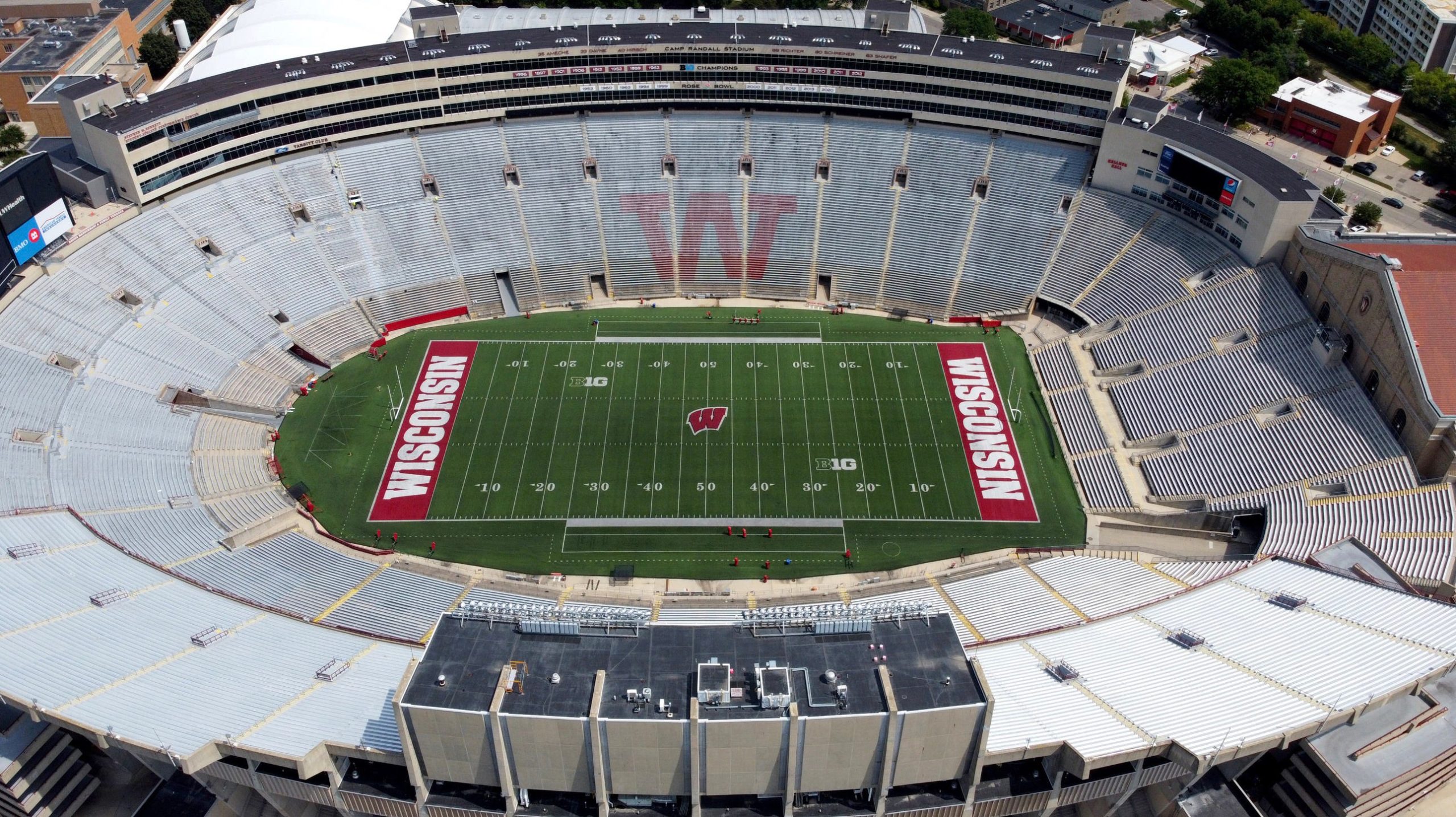Ad Disclosure

Big Ten needs to continue to evolve with COVID-19 protocols
By Ryan O'Gara
Published:
The Big Ten, for better or worse, has been much more cautious than the other Power 5 conferences in terms of COVID-19. It postponed when other leagues kept on playing, and even when it came back, it had stricter return-to-play protocols.
Now that Wisconsin had an outbreak and the Big Ten is dealing with this in a real way for the first time, the league is coming to grips with the challenges that come along with positive tests.
Under the protocols released before the season, any player who tests positive is out for a minimum of 21 days. In the SEC, it is only 10. A Big Ten player is likely to miss 3 games under the current rules, which were put in place in order for the player to undergo the necessary heart screenings. The tricky part is that at the time these protocols were put in place, heart screenings couldn’t begin until 14 days after the positive test. This was put in place out of an abundance of caution, as concerns about myocarditis were why the Big Ten postponed initially, and the ability to detect these heart issues in student athletes is why the Big Ten reversed its decision and came back.
But in the last month, there’s been some unexpected good news on the myocarditis front: Doctors are finding almost no heart abnormalities in athletes who test positive for COVID-19. In fact, it is less than 1 percent, and some cardiologists are saying these heart screenings are no longer necessary in patients showing mild or no symptoms.
These are great developments, and as a result, Sports Illustrated’s Ross Dellenger wrote a piece examining whether the Big Ten’s protocols still make sense. It’s a fair question.
The Big Ten has taken a ton of heat over the last few months for its handling of the situation, and most all of it has been justified. There was another round of well-deserved criticism on Wednesday as the Wisconsin-Nebraska game was postponed and can’t be made up, because the Big Ten started its season so late.
But I’ll say this for the Big Ten — it evolved once, so why can’t it evolve again?
This is a pandemic, and we’re all learning as we go. As more information becomes available, it’s perfectly acceptable to reevaluate policies and protocols. That’s what the Big Ten did back in September. It said it would not be revisiting its decision to postpone the season, and then what do you know, the Big Ten revisited the decision to postpone the season. Sure, it may have had its tail between its legs, but it did the right thing, that best served its student-athletes.
Now that more data is available on heart screenings, the Big Ten should strongly consider updating its protocols to reflect the most current information. Though obviously a little biased since its his team potentially missing out on multiple games, Wisconsin athletic director Barry Alvarez told SI that he believes the Big Ten’s medical panel should “reevaluate” the 21-day protocol and extensive cardiac screenings. Penn State athletic director Sandy Barbour believes the 21-day policy could be adjusted, they just need more data.
Obviously, the Big Ten doesn’t want to cancel games. Obviously, the Big Ten doesn’t want the star quarterback of one of its best programs to sit out longer than necessary. And obviously, the Big Ten doesn’t want to put its athletes at risk.
But there’s a middle ground here, one that the Big Ten would be wise to explore. There’s no shame in making adjustments as new information comes to light, especially if it is backed by cardiologists. This is our first time in a pandemic, and we’re all much smarter now than we were a month ago, or 6 months ago. And 6 months from now, we’ll know even more. That’s how this works.
So if our knowledge of the virus is fluid, the protocols should be, too. The Big Ten has pivoted once before, there’s no reason it can’t do so again.
This chart, from an article published Monday in @JAMA_current, outlines new heart screening recs.
Early data says <1% of athletes who were mildly symptomatic are showing heart abnormalities.
Numbers are in single digits “if we’re finding them at all."https://t.co/JFy2L011Rl pic.twitter.com/thhZ05Oy7r
— Ross Dellenger (@RossDellenger) October 28, 2020
Ryan O'Gara is the lead columnist for Saturday Tradition. Follow him on Twitter @RyanOGara.